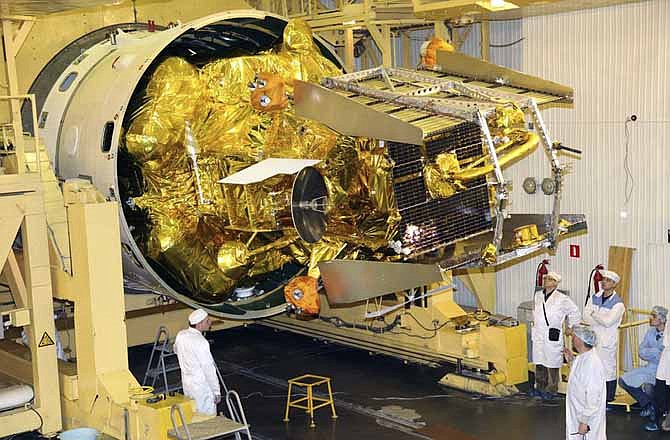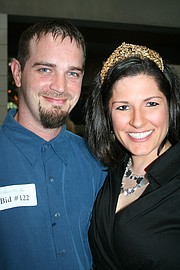MOSCOW (AP) - Russia will look into the possibility a U.S. radar station could have inadvertently interfered with the failed Mars moon probe that plummeted to Earth, Russian media reported Tuesday, but experts argued that any such claims were far-fetched.
NASA spokesman Bob Jacobs also said the U.S. space agency was not using the military radar equipment in question at the time of the Russian equipment failure, but instead was using radar in the Mojave desert in the western United States and in Puerto Rico.
Russia's state news agency RIA Novosti quoted Yury Koptev, former head of the Russian space agency Roscosmos, as saying investigators will conduct tests to check if U.S. radar emissions could have impacted the Phobos-Ground space probe, which was stuck in Earth's orbit for two months before crashing down near Chile and Brazil.
"The results of the experiment will allow us to prove or dismiss the possibility of the radar's impact," said Koptev, who is heading the government commission charged with investigating causes of the probe's failure.
U.S. experts suggested the Russians should look for causes of the failure at home.
"The Russian Space Agency would do themselves and the future of Russian planetary exploration some good to look inside the project and the agency to find the cause of the Phobos-Ground mishap," said Alan Stern, former associate administrator for science at NASA and now director of the Florida Space Institute at the University of Central Florida.
The current Roscosmos head, Vladimir Popovkin, has said the craft's malfunction could have been caused by foreign interference. Deputy Prime Minister Dmitry Rogozin acknowledged U.S. radar interference as a possible cause but said it was too early to make any conclusions.
"Practically all disruptions are due to flaws in the technologies manufactured 12 to 13 years ago," he said.
Other space experts said the possibility of U.S. interference should be considered only after investigating all other possible causes.
Alexander Zakharov, a specialist at the Space Research Institute, which developed the Phobos-Ground, called the suggestion "contrived" and doubted the United States has radar powerful enough to interfere with a spacecraft at an altitude of around 120 miles.
"You can come up with a lot of exotic reasons," Zakharov told RIA Novosti. "But first you need to look at the apparatus itself, and there is a problem there."
The Phobos-Ground fell to Earth on Sunday in the vicinity of Chile and Brazil, but no confirmed impact sites have been reported.


